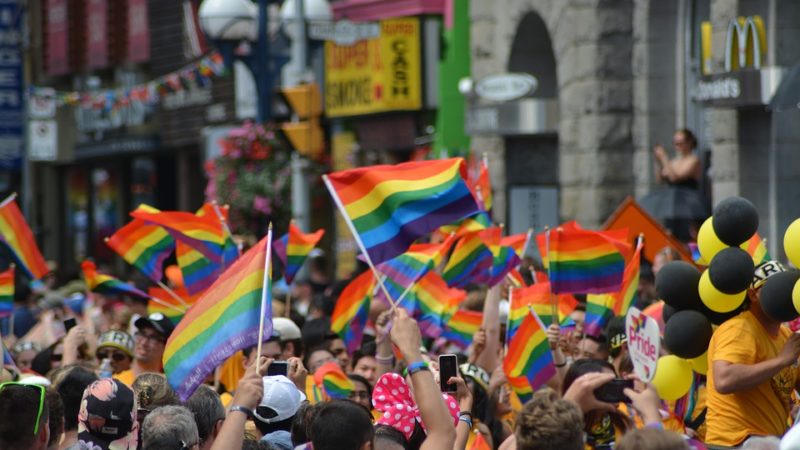The Tories' Brexit plans still pose a risk to fundamental rights, writes Best for Britain CEO Eloise Todd.

First things first: happy Pride to all those celebrating over the coming weeks. The news this week will be dominated by Theresa May’s big Brexit showdown at Chequers, but Londoners will be taking to the streets tomorrow in an unparalleled show of diversity.
Unfortunately though, Brexit and equal rights overlap on more than just dates. Those egging on Brexit have been keen to quash any talk of a post-Brexit watering down of rights across the board, but don’t be fooled – they know as well as I do that the EU has played a crucial role in creating and safeguarding legal protections for the LGBT+ community in the UK.
And with cancelling the European Court of Justice’s jurisdiction in the UK – a blood red line for Brexit extremists in the Tory party – those protections now need protecting more than ever.
So, for those in doubt, it’s worth going over what impact the EU has had over LGBT+ rights in the UK.
The EU has had a formative impact on LGBT+ rights in the UK, both directly and indirectly. An example of this is the galaxy of anti-discrimination laws that govern behaviour in the workplace and the employment process.
1996 saw a landmark judgement handed down by the ECJ in a case brought by a British trans woman who had been sacked after undergoing gender reassignment, with the ECJ ruling against the UK government that the dismissal constituted a form of sex discrimination covered by EU law – leading to gender reassignment being added to the Sex Discrimination Act in the UK.
Before the 2000 EU Employment Equality Directive, employees in the UK were only protected against discrimination on the grounds of race, sex and disability. The Directive expanded these legal protections to cover employment on the grounds of sexual orientation, requiring all EU countries to ensure equal treatment for lesbian, gay and bisexual workers. The UK government implemented this in 2003.
These EU initiatives should not be underplayed. They show the positive impact that can be produced when the EU supports national activists, create a double layer of protection for those in the UK and demonstrate the ECJ’s commitment to applying non-discrimination principles for LGBT+ communities across the bloc.
Nor, as is frequently the case, should we underestimate the importance of the EU as a flag-bearer for LGBT+ rights around the world. The above cases, as well as protections for LGBT+ people in documents such as the Amsterdam Treaty and Charter of Fundamental Rights, made the EU the first international organisation to explicitly recognise sexual orientation and gender identity as grounds of discrimination in law.
And it’s also in stark contrast to the government’s current attitude towards legal protections, with threats to scrap the Human Rights Act dating back before the 2015 general election.
As celebrations get under way this week in the capital, let’s take a second to recognise the vital role played by the EU in bringing about the protections LGBT+ people now enjoy – and the threat to those protections posed by the Tory Brexit emerging from Chequers.
Eloise Todd is CEO of Best for Britain.
To reach hundreds of thousands of new readers we need to grow our donor base substantially.
That's why in 2024, we are seeking to generate 150 additional regular donors to support Left Foot Forward's work.
We still need another 117 people to donate to hit the target. You can help. Donate today.



